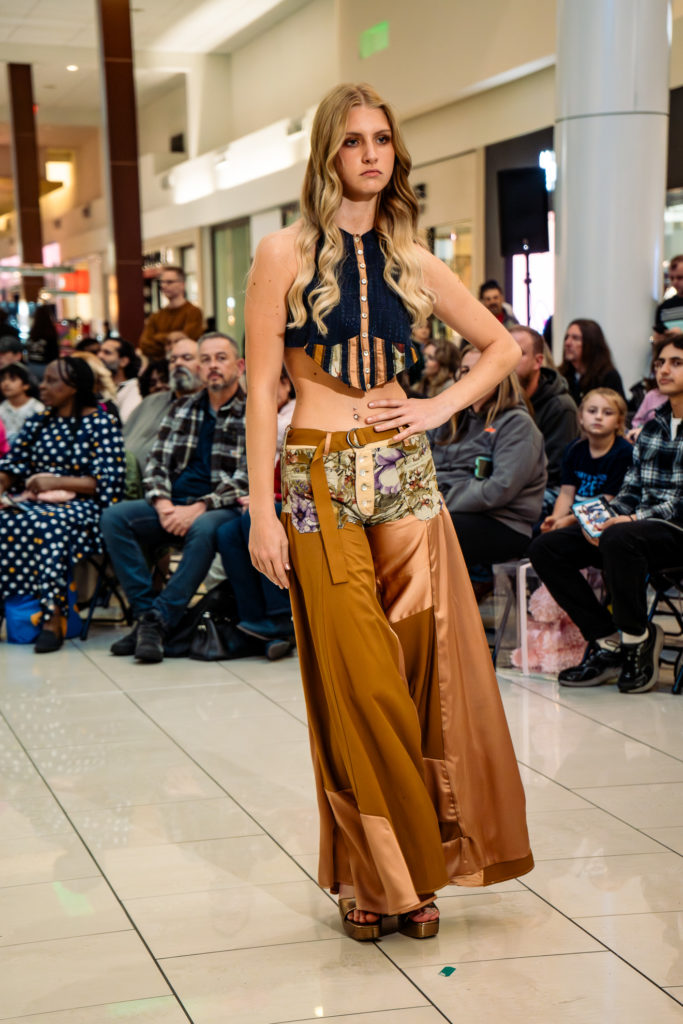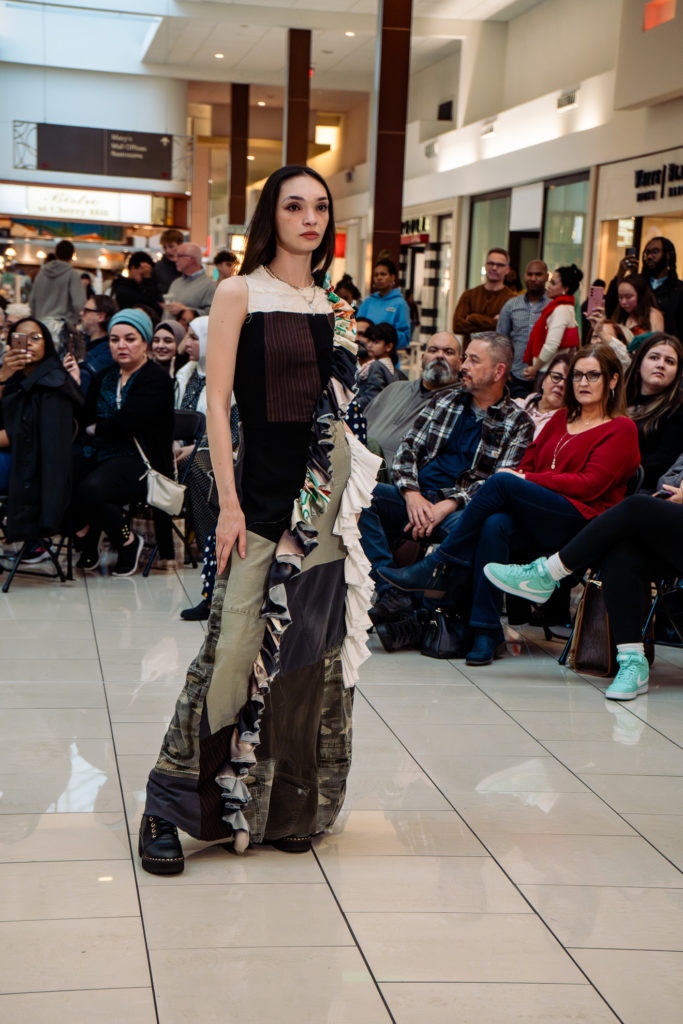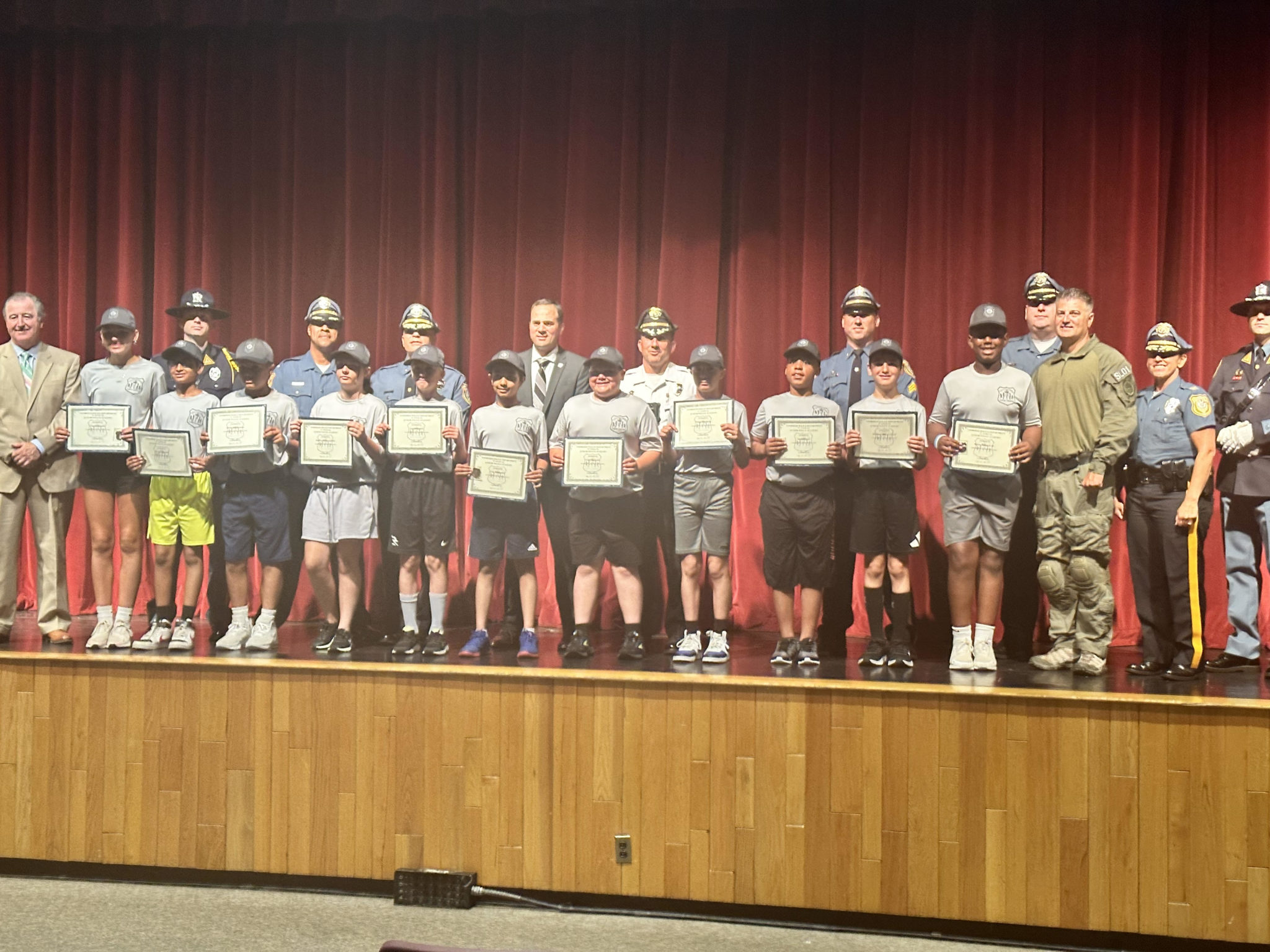Rowan College at Burlington County fashion students took their designs to the runway on May 10 at the Cherry Hill Mall, including two who focused on sustainability as part of their work: Victoria Schade and Taiwo Adekunle.
“It’s really kind of cool, because they have to come up with a whole thesis and problem solve and execute it,” said Lisa Steinberg, head of the fashion department at Rown. “They also did a poster that went along with it, and then made the look, saying, ‘This is something that could be done to solve it.’”
The end-of-year fashion show is in its second year and features designers of all levels. Twenty-six students – including Schade and Adekunle – displayed their work before a crowd of about 400 people.
The show featured about 30 collections and more than 90 original designs made in four Rowan classes, as well as some designs by alumni.
Schade’s collection, Cycle of the Phoenix, consisted of three outfits whose materials had all been taken apart from thrift clothing.
“I really learned how to be creative when reusing old things and recycling,” she reflected, “and how best not to waste fabrics when creating something new, especially when it’s things taken apart. You’re really piecing together smaller bits of fabric.”
Adekunle was one of four students who won the mall’s Excellence in Design award for her four-piece collection, Cor-set Sustainability. Her research focused on the impacts of fast fashion and recycling.
“I found out that a lot of brands tend to dispose of clothing that didn’t get sold, and some people, once their clothing lifecycle is older, they dispose of it to landfills,” she explained. “To curb the situation, I proposed a Recycle Your Garments campaign. That way, you can take your clothing to stores and get store credit and return your ready-for-disposable clothes. And after that, they can repurpose the clothes into another new garment using patchwork.”
Adekunle’s patchwork garment Revamp is a dress that features a variety of fabrics, such as cotton blends, denim, synthetic fibers like polyester and silky prints. She deliberately arranged the fabric so the synthetic fibers wouldn’t come in contact with the skin.
“I think people should think more about sustainable fibers and bio-degradable products,” she asserted, “because most of the synthetic fibers take so long to bio-degrade and some of them don’t. So when we’re buying our clothing, we should take into account our fibers.”
Steinberg noted that some of the key environmental issues in the fashion world include looking at the fibers used, since the synthetic ones like polyester can have a negative impact on material making. There is also the issue of fast fashion, where rapidly produced pieces are not always well made. The result can be a lot of clothing waste.
For Schade, understanding more about clothing cycles has had an impact.
“I’d say at this point … 99% of the clothes I buy are going to be thrifted from a second-hand store because I don’t like adding to the waste of the fashion industry ,” she pointed out.
“It really is a main part of my life now – wanting to be sustainable in my clothing.”





